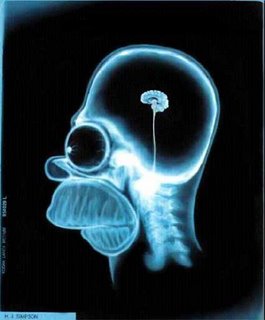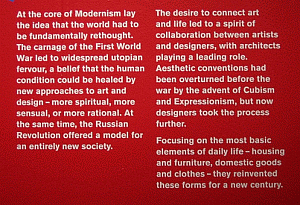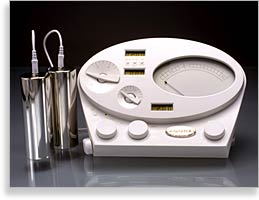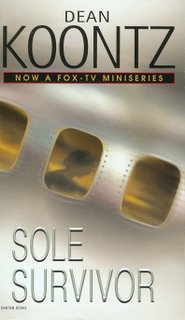Thursday, September 28, 2006

The documentary regarding brain activity during praying/meditation raises some questions about the validity of these scientists' construct of "god moments". Who is to say that these random images triggered in the minds of the participants are not subconscious snippets of their lives? During sleep, our brain takes distinct images and memories from our past day, week, year, whatever; jumbles them up, connects them in bizarre ways; and regurgitates them into the form of a dream. If these neuropsychologists are planting nodes on their guinea pigs subjects in an attempt to trigger "god moments" within them, they are probably likelier to provoke images and memories already existent in their memories (thus, analogous to a dream); exaggerated and inflated caricatures of them, no less. The skeptic/rationalist/voice of reason in me does not believe in the ability of these people to experience transcendent "god moments" within the realms of a laboratory.
And to look at the grand scheme of spirituality & technology, so what if hypothetically this neuroscience does suddenly allow us to package transcendent emotions in a bottle? Issues in society lie much deeper than the distinctive emotions of individuals; this pursue of "emotions in a pill" seems much too reflective of our individualistic culture and parallel to a "quick fix".
Regarding Coupland's novels - they do indeed hit home in terms of this course, in that they tend to have themes of seeking answers coupled with somewhat modern circumstances. That sounds pretty vague, but one example is Microserfs. Not a bad read.
B
And to look at the grand scheme of spirituality & technology, so what if hypothetically this neuroscience does suddenly allow us to package transcendent emotions in a bottle? Issues in society lie much deeper than the distinctive emotions of individuals; this pursue of "emotions in a pill" seems much too reflective of our individualistic culture and parallel to a "quick fix".
Regarding Coupland's novels - they do indeed hit home in terms of this course, in that they tend to have themes of seeking answers coupled with somewhat modern circumstances. That sounds pretty vague, but one example is Microserfs. Not a bad read.
B
Monday, September 25, 2006
 That photo was taken this past summer at the V&A museum in London. There was an entire Modernism exhibit going on at the time and this was displayed on one of the walls. After reading that first paragraph, it seems as though there is a paradox in the phrase "a belief that the human condition could be healed by new approaches to art & design - more spiritual, more sensual, more rational". I suppose if one were thinking of spirituality and technology dichotomously then the phrase would sound contradictory, but perhaps this passage is a foreshadowing of Noble's "spiritual transcendence via technology". Perhaps to the modernists, there was beauty in objects that were functional and aesthetically-pleasing at the same time. I do recall seeing "Modernist" chair designs during the exhibit, and it was mentioned that while these designs might not be overly spectacular to us anymore, they represented a great breakthrough in innovation back in the day.
That photo was taken this past summer at the V&A museum in London. There was an entire Modernism exhibit going on at the time and this was displayed on one of the walls. After reading that first paragraph, it seems as though there is a paradox in the phrase "a belief that the human condition could be healed by new approaches to art & design - more spiritual, more sensual, more rational". I suppose if one were thinking of spirituality and technology dichotomously then the phrase would sound contradictory, but perhaps this passage is a foreshadowing of Noble's "spiritual transcendence via technology". Perhaps to the modernists, there was beauty in objects that were functional and aesthetically-pleasing at the same time. I do recall seeing "Modernist" chair designs during the exhibit, and it was mentioned that while these designs might not be overly spectacular to us anymore, they represented a great breakthrough in innovation back in the day.In regards to the "Unfuzzying the Fuzzy" article, it should be mentioned that a more representative sample might yield similarly interesting answers. If an ethnically diverse sample were taken, perhaps there would be more accurate notions of what the "people" think of the terms spirituality & religion. We could gain insight into people's notions about Hinduism, Buddhism, Islam, etc. and explore whether there are similar assumptions about organized religion in those cultures. Because while Christianity has negative connotations, this may not be the case for other organized world religions (such as the ones mentioned). Who's ever heard of the terms "self-righteous" and "authoritarian" used to describe monks, or even the Dalai Lama?
B
Wednesday, September 20, 2006

I had some points written down from last class that I intended to post on here. So, let me do this now:
Dichotomy between mind & body - religion and technology aren't as parallel as people make them out to be. Technology favors intelligence & cultivating the mind (a message often expressed in part 2 of Noble); religion emphasizes the spirit/soul of the believer. Difference is in how we utilize this part of our being - in science, it is to further inventions, discover new ways of doing things, and be efficient - in religion, it is to be closer to God and perhaps attain enlightenment. But after reading part 2 of Noble, a new question must be raised -- are these "goals" really, perhaps, our way of avoiding life's problems? Do we *really* need new and better technology?
Technology's rise in modern society has given way to newfound "diseases": "Blackberry Thumb" and Carpal Tunnel Syndrome.
Technology isn't autonomous. From a psychological perspective, it seems as though people/society/researchers are just. never. satisfied. It is human nature to want to keep improving and progressing. As discussed, look at the progress of the television and music distribution. It is also imperative to mention a Saturday Night Live skit I once saw about Steve Jobs & the iPod - in it, "Steve Jobs" is a guest on a news show and every few seconds, he presents a new iPod, each gradually smaller than the next, until the last one is basically microscopic. Do we really need Video iPods where the screen is so small and you can't even see what is going on.
Contrast between spirituality & technology: technology is ever-changing; religion is a stable part of most people's lives. It seems to me that religion is a "rock" that people either see as a constant in their life that dictates some of their daily/weekly tasks (church, praying, saying grace) or something to turn to during crisis. Technology is never the same. But perhaps this is the epitome of the phrase "Change is the only constant."?
Dichotomy between mind & body - religion and technology aren't as parallel as people make them out to be. Technology favors intelligence & cultivating the mind (a message often expressed in part 2 of Noble); religion emphasizes the spirit/soul of the believer. Difference is in how we utilize this part of our being - in science, it is to further inventions, discover new ways of doing things, and be efficient - in religion, it is to be closer to God and perhaps attain enlightenment. But after reading part 2 of Noble, a new question must be raised -- are these "goals" really, perhaps, our way of avoiding life's problems? Do we *really* need new and better technology?
Technology's rise in modern society has given way to newfound "diseases": "Blackberry Thumb" and Carpal Tunnel Syndrome.
Technology isn't autonomous. From a psychological perspective, it seems as though people/society/researchers are just. never. satisfied. It is human nature to want to keep improving and progressing. As discussed, look at the progress of the television and music distribution. It is also imperative to mention a Saturday Night Live skit I once saw about Steve Jobs & the iPod - in it, "Steve Jobs" is a guest on a news show and every few seconds, he presents a new iPod, each gradually smaller than the next, until the last one is basically microscopic. Do we really need Video iPods where the screen is so small and you can't even see what is going on.
Contrast between spirituality & technology: technology is ever-changing; religion is a stable part of most people's lives. It seems to me that religion is a "rock" that people either see as a constant in their life that dictates some of their daily/weekly tasks (church, praying, saying grace) or something to turn to during crisis. Technology is never the same. But perhaps this is the epitome of the phrase "Change is the only constant."?
B
Wednesday, September 13, 2006

Another year older, another rainy day. I've made some progress in reading Noble. After reading the phrases "spiritual transcendence" and "useful arts" so many times (Thanks, Bacon) I decided to yank out my text from ANTH 3320 last year for Religious Anthropology. In it: "Human limitations and neuroses are the products of negative memories or images ("engrams") that must be dislodged if we are to achieve our full potential. Engrams can be eliminated through a form of spiritual counseling called "auditing", which requires precise interview protocols and the strategic use of an electronic tool called the "E-meter"". (on Scientology) Achieving our "full potential", also known as... spiritual transcendence? I'm reminded of Maslow's hierarchy of needs, which indicates that the highest and most sophisticated human need is "self-actualization". Anyway, I love the claim that this E-meter device (likely the layman's lie detector... at least this is what was concluded in class last year) plays a role in one's spiritual counseling. I'm not sure that this is what Bacon or Fiore were talking about when they were discussing millenarianism/spiritual transcendence through technology. B
Friday, September 08, 2006

Soooo, first post. This is a good way to feel my way around the course material and I like that I can look back on my thoughts. I'm no stranger to blogging and this will be interesting, I think! Anyhow, I read a couple books this summer - Deception Point by Dan Brown and Sole Survivor by Dean Koontz amongst them. Don't laugh. If I remember correctly those 2 novels did sort of contain themes of spirituality & technology... or maybe they had worded it differently as religion & science. Either or. Spoilers ahead.
Anyway, the former talked about how NASA had made this enormous cover-up of a secret that would destroy the faith and beliefs of what people knew. Turns out that somebody had faked a meteorite that made it look as if humans were evolved from extraterrestrial beings (something or other) and people's beliefs were going to be rocked to their cores if they found out. The other book by Dean Koontz involved some futuristic corporation's use of manipulative technology and recruitment of children with supernatural powers (X-Men, anyone?) to sort of "play God" and abuse their powers in society. The books aren't fresh in my mind, but I thought I would talk about them to get the ball rolling on this blog. If I can pull out those books again, maybe I'll find something else interesting... for now though that'll have to wait...
Until next time,
B
Anyway, the former talked about how NASA had made this enormous cover-up of a secret that would destroy the faith and beliefs of what people knew. Turns out that somebody had faked a meteorite that made it look as if humans were evolved from extraterrestrial beings (something or other) and people's beliefs were going to be rocked to their cores if they found out. The other book by Dean Koontz involved some futuristic corporation's use of manipulative technology and recruitment of children with supernatural powers (X-Men, anyone?) to sort of "play God" and abuse their powers in society. The books aren't fresh in my mind, but I thought I would talk about them to get the ball rolling on this blog. If I can pull out those books again, maybe I'll find something else interesting... for now though that'll have to wait...
Until next time,
B